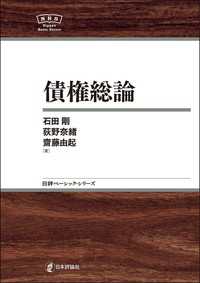- ホーム
- > 洋書
- > ドイツ書
- > Humanities, Arts & Music
- > Religion & Theology
- > christianity
Full Description
In this volume, the contributions analyze diverse apocalyptic phenomena, religious and secular alike. The authors use the category of entanglements in order to demonstrate that the terms "religious" and "secular" remain ideal type abstractions, which dissolve upon a closer empirical look. They converge on the assumption that apocalypse as literature genre and lens of interpretation either leads towards emancipation or totalitarian control. The role of apocalypse in the advance of modernity is analyzed and how the once religious concept changes through secularization and adaptation by various movements on the political spectrum. The main goal is to achieve mutual appreciation by both religious and secular actors alike, who seek to enhance the common good. Both the church and secular society must humbly recognize that each needs the other. The church must recover its apocalyptic roots and the secular society admit its limitations.







